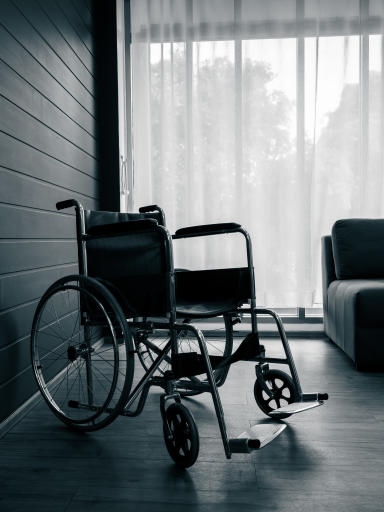How To File a Nursing Home Abuse Lawsuit

Nursing home abuse lawsuits aim to ensure accountability for the mistreatment, neglect, or harm suffered by elderly residents. The National Center on Elder Abuse reveals that one in ten seniors in the U.S. experience some form of elder abuse annually, though only a fraction of cases are reported. This underscores the critical importance of pursuing legal action to protect our seniors. These cases encompass various forms of abuse, from physical and emotional to financial or sexual misconduct. They aim to provide justice for victims and hold accountable the institutions entrusted with their care. With the elderly population doubling by 2050, addressing nursing home abuse is an urgent societal concern. Lawsuits seek compensation for victims and drive improvements in care standards, ultimately fostering a safer environment for all residents.
How Long Do I Have to File a Nursing Home Abuse Lawsuit?
The time frame for filing a nursing home abuse lawsuit hinges on jurisdiction, typically spanning one to three years. However, exceptions arise, especially if the victim succumbs to injuries well beyond this period. When pursuing legal action against an institution rather than an individual, distinct rules and deadlines may come into play. Engaging a specialized elder abuse attorney is paramount for navigating these nuances. It’s vital to note that legal landscapes can shift, warranting periodic updates and expert counsel to ensure adherence to current regulations. Your best course of action is to consult with a legal professional to stay informed and take appropriate steps.
How To Start a Lawsuit
To start a lawsuit, begin by reaching out to a dedicated attorney who specializes in your specific case. Collect pertinent evidence, document incidents, and establish a detailed timeline before proceeding with the formal filing process. This ensures a strong foundation for your legal action.
Seek Counsel from an Attorney
Your first and most vital move in pursuing a nursing home abuse lawsuit is to connect with a compassionate and experienced attorney. Look for a lawyer with a track record in handling elder abuse or nursing home negligence cases. They will provide legal expertise and offer empathy and support during this challenging time.
Gather Relevant Documents and Evidence
Begin by collecting all pertinent documents associated with your loved one’s time in the nursing home. This might include medical records, incident reports, photographs, and any communication with the facility. Treat these documents with sensitivity, as they are key to substantiating your case and seeking justice for your loved one.
Document Your Loved One’s Experience
Take the time to sit down with your loved one and listen to their account of the incidents. Respect their emotions and document their experience in a compassionate manner. This provides critical information for your case and shows your loved one that their voice matters.
Understand the Legal Grounds for Your Lawsuit
Familiarize yourself with the legal principles that underpin nursing home abuse cases. This may encompass negligence, inadequate care, emotional or physical abuse, or violations of residents’ rights. Your attorney will help you grasp these concepts and establish a solid foundation for your lawsuit.
Evaluate Damages and Compensation
Consider the full extent of the harm your loved one has endured. This includes physical injuries, emotional distress, medical expenses, and any lasting trauma. Collaborate closely with your attorney to ensure that the compensation sought addresses all aspects of your loved one’s suffering.
Explore Alternative Paths to Resolution
Alongside pursuing a formal lawsuit, consider alternative approaches like mediation or negotiation. These avenues can sometimes lead to swifter resolutions and allow for a more personalized resolution for your loved one. Your attorney will guide you on when and how to explore these options.
File a Complaint or Petition
With your attorney’s guidance, draft and file the necessary legal documents to commence the lawsuit. This involves creating a complaint or petition that outlines the specific incidents, legal claims, and the relief sought for your loved one. Approach this process with compassion and determination.
Notify the Facility
Guarantee that the nursing home and all relevant parties receive proper notice of the lawsuit. This step is essential for initiating the legal proceedings and ensuring that all involved parties are aware of the allegations and claims being made.
Response to the Defense
After being served with the lawsuit, the nursing home will have a designated response period. They may contest the claims or present a defense. Your attorney will analyze their response and prepare the next steps, ensuring that your loved one’s rights and well-being remain at the forefront.
Discovery Phase
This phase involves a meticulous exchange of information between both parties. Your attorney will request documents, conduct interviews, and gather evidence to build a robust case. Treat this process with care, as it forms the backbone of your lawsuit.
Pre-Trial Motions and Hearings
Your attorney may file various motions before the trial, aiming to shape the direction of the case. This could include requests to admit or exclude specific evidence. Attend hearings with determination, knowing you are advocating for your loved one’s rights and well-being.
Negotiation and Settlement
Throughout the process, there may be opportunities for negotiation and potential settlements. Your attorney will provide guidance on the merits of any proposed settlements, always keeping your loved one’s best interests at the forefront.
By following these steps and collaborating closely with a dedicated attorney, you’ll be better prepared to navigate the complexities of a nursing home abuse lawsuit. Remember that every case is unique, and it’s crucial to seek guidance from a legal professional who understands your specific circumstances and can approach the situation with both expertise and compassion.
How Long Does a Nursing Home Abuse Lawsuit Take?
The duration of a nursing home abuse lawsuit can vary widely, from several months to even a few years. Several factors come into play that affect the timeline. These include the complexity of the case, the severity of the abuse, and the availability of evidence. Additionally, the efficiency of the legal system in a particular jurisdiction and the court’s existing workload can impact proceedings. Settlement discussions or alternative dispute resolution may speed up the process, while contested motions or appeals can extend it. It’s important to remember that each case is unique, so consulting with a seasoned attorney is crucial for a more precise estimate based on your specific situation.
Will My Lawsuit Go to Court?
It’s not guaranteed that your nursing home abuse lawsuit will go to court. Many cases find resolution through settlements or alternative methods like mediation. Whether it proceeds to court hinges on various factors. The strength of evidence, willingness to negotiate, and the defendant’s acceptance of responsibility all play a role. Additionally, considerations like the defendant’s insurance coverage and their aversion to publicity can influence the decision. Ultimately, the course of your lawsuit will be guided by the unique circumstances and the counsel of your attorney.
Resources for Families
For families navigating nursing home abuse lawsuits, there are vital resources available. Local bar associations can connect you with skilled attorneys specializing in elder abuse cases. Non-profit organizations like the National Center on Elder Abuse provide not just information but also compassionate legal support and advocacy. State and federal agencies, including the Administration for Community Living, also offer programs to prevent and address elder abuse. Legal aid organizations often provide free or low-cost legal assistance to individuals and families facing elder abuse situations. They can help with legal advice and potentially represent you in a lawsuit. Remember, seeking advice from a qualified attorney remains the crucial first step in pursuing a nursing home abuse case. Elder law attorneys specialize in providing legal guidance for cases involving elder abuse, including those in nursing homes. They offer personalized advice tailored to the specific circumstances, helping families understand their legal options and navigate the complexities of such cases.
Local Bar Association
Local Bar Associations connect families with skilled attorneys specializing in elder abuse cases. These attorneys offer personalized advice to help navigate nursing home abuse lawsuits effectively. To find your local bar association, visit the American Bar Association’s Find Your Local Bar Association page.
National Center on Elder Abuse (NCEA)
The NCEA is a caring non-profit dedicated to preventing elder abuse and assisting victims and families. They provide valuable information on elder abuse laws and legal options for nursing home abuse cases. Contact them through their Contact Us page.
Administration for Community Living (ACL)
ACL, a federal agency, strives to protect older adults’ well-being, including initiatives to prevent elder abuse. They offer resources on legal rights and support for those facing nursing home abuse. For inquiries, visit the ACL’s Contact Us page.
Legal Aid Organizations
Local legal aid groups are a lifeline for individuals and families grappling with elder abuse. They extend a helping hand with affordable or no-cost legal support, offering crucial advice and potentially representing victims in lawsuits. Finding one in your area is as simple as conducting an online search or exploring platforms like LawHelp.org, which offers a comprehensive directory of legal aid resources.
National Academy of Elder Law Attorneys
Engaging an elder law attorney is akin to having a trusted guide through the legal intricacies of nursing home abuse cases. These experts provide tailored advice, ensuring families comprehend their legal recourse. To locate a skilled elder law attorney, resources such as the National Academy of Elder Law Attorneys (NAELA) offer a reliable directory of accredited professionals specializing in elder law.
Expertise.com StaffAuthor
Step into the world of Expertise.com, your go-to hub for credible insights. We don't take accuracy lightly around here. Our squad of expert reviewers, each a maestro in their field, has given the green light to every single article you'll find. From rigorous fact-checking to meticulous evaluations of service providers, we've got it all covered. So feel free to dive in and explore. The information you'll uncover has been stamped with the seal of approval by our top-notch experts.




